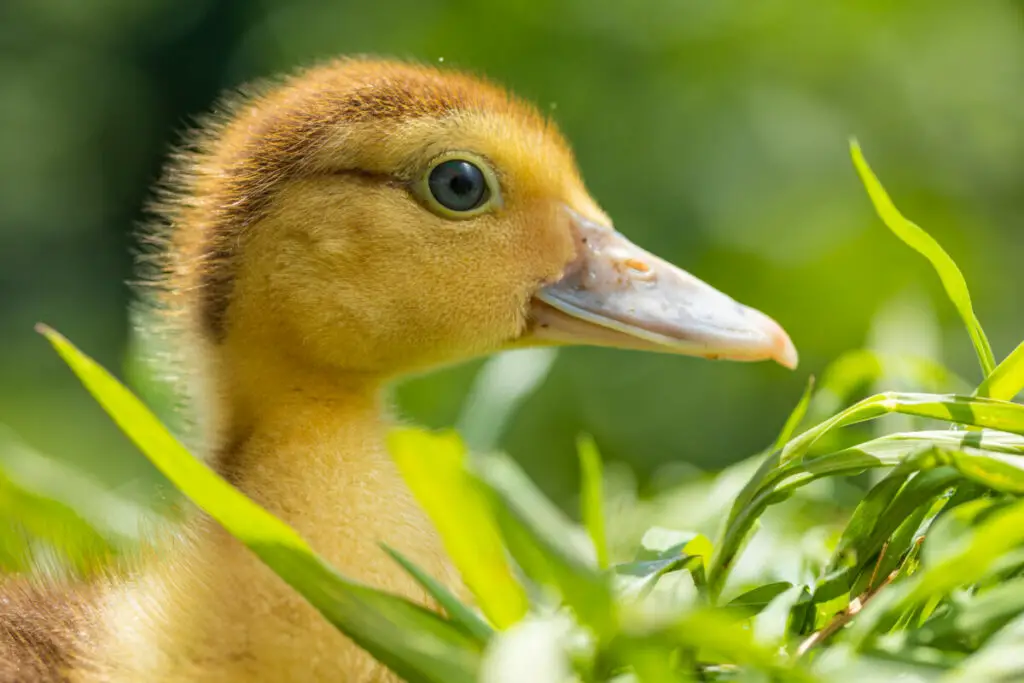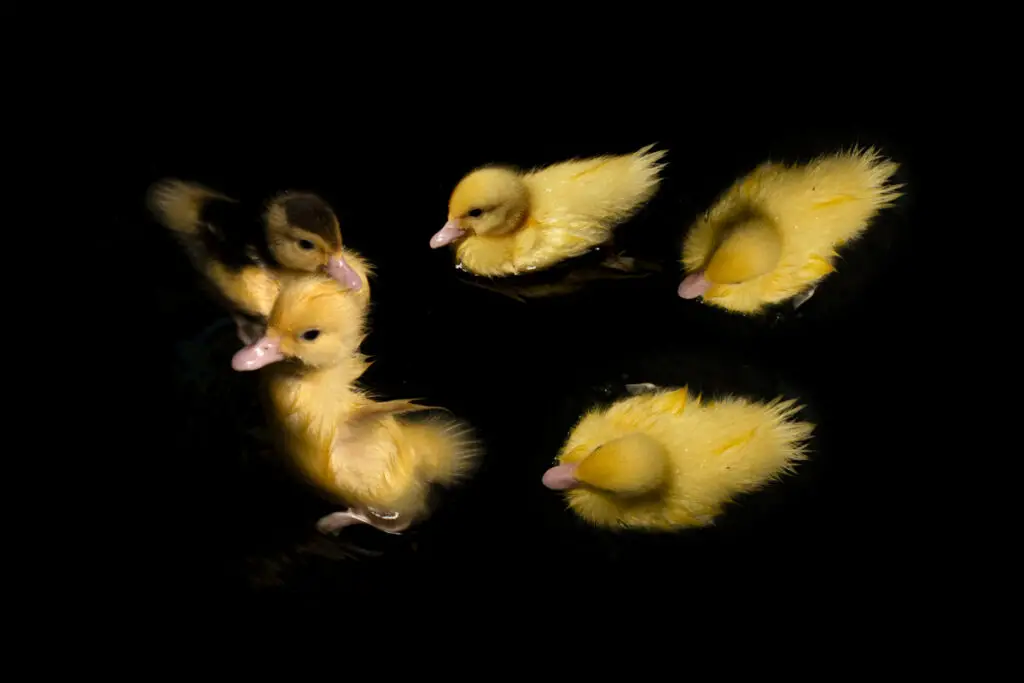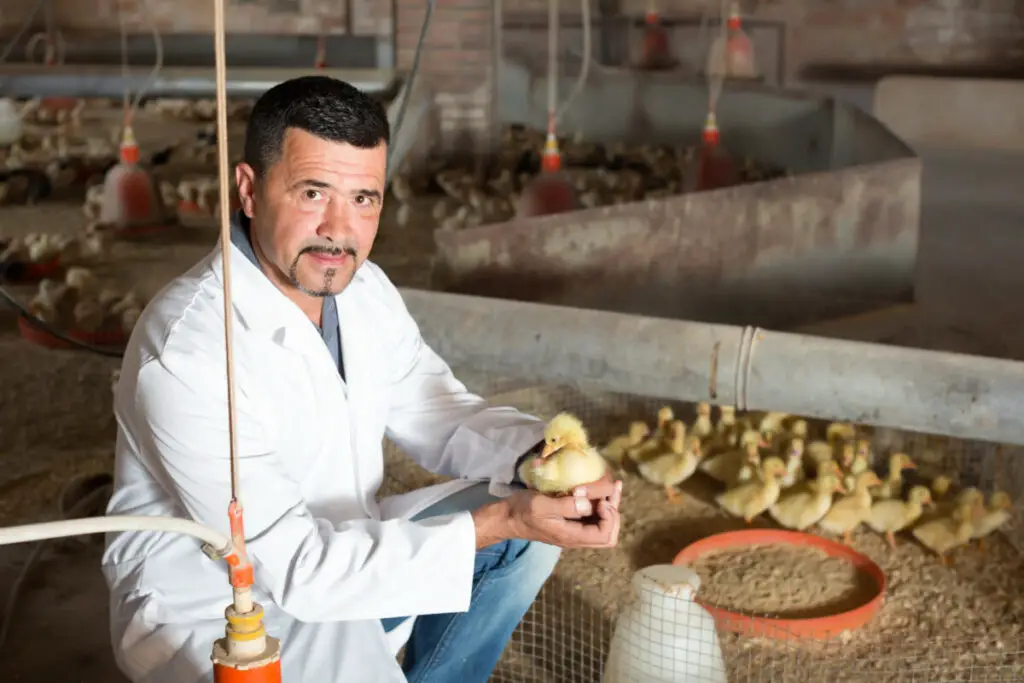
Owning or caring for an animal is something that most of us have done before. Much like any other animal we care for, we want to save and ensure optimal health for them. So, if you encounter a baby duck that is dying, how do you save them?
Saving a dying baby duck involves isolation from elemental hazards, balanced water, food intake, and proper rest and sleep cycles. Other situations may call for specific actions. Understanding the symptoms and condition of the duck is what will determine what needs to be done.
Saving a dying baby duck is something everyone can potentially do. It doesn’t have to be complicated, in fact, it is easy to understand and know what needs to be done, assuming you have evaluated the baby duck’s condition and judged them accordingly. In this article, we will dive more in-depth into the mentioned actions and learn what we can do to save dying baby ducks.
Symptoms of a Dying Duck
Before we understand and learn how to save and help a dying duck, we should first be aware of some of the conditions that would warrant such actions. These conditions may be comorbid with others on this list, so it is vital for us to know exactly what we may be dealing with. This, of course, is not a fully comprehensive list, but it will allow us to get an idea of how to proceed further in the saving process.
- Eating disorder: This means that the duck will eat abnormally, won’t eat at all, or will eat in lower frequencies. A loss in appetite is common for most animals other than ducks so being weary of their current appetite state is important to recognize.
- Unwillingness to fly: When a duck is potentially dying, a common and noticeable side effect is the reluctance to fly. The primary reason for this is the excessive stress that flying would cause them. Since sickness of any kind is already a burden on anyone and anything, reducing such through minimal movement, for example, is key to preserving energy and focusing on getting rest so they can heal.
- Abnormal weight gain or loss: This may relate to the eating disorder recently mentioned in that the duck not eating enough or anything at all would result in extreme weight loss. Depending on the duck type, the healthy weight of a baby duck should be anywhere between 30 to 40 grams in its earlier weeks and could reach up to a single pound in 1 month. For weight gain, the duck perhaps could be coping with its pain through eating. It may eat food excessively and/or abnormally in that it could eat non-food items such as wires, screws, or poisoned items.
- Intense itching: If a duck is potentially sick and/or dying, it will scratch itself via its feet or its beak. Itching is an irritation that plagues most of us and our animals in that once you start, it can be difficult to quit scratching. That is another problem, as if the duck experiences intensive itching, it may result in persistent scratching causing rashes and potential scars.
Again, this isn’t a comprehensive list of every symptom a dying duck could be displaying, but it is a great starting point that allows you to be aware of what to look for and take immediate action.
Identification and Evaluation

Now that we have briefly mentioned some common symptoms of a dying duck, we will go over specific methods and how they can potentially help you save the duck.
The first step that you should do is properly identify and evaluate if the duck is in fact dying and needs proper care. This might be a no-brainer and unnecessary to mention, but caring extensively for a duck that isn’t dying is not necessary and perhaps overbearing.
If the duck is dying or suffering severely, that is the time when you should carefully proceed to help save the duck. You should also determine how long they have been sick or in dire condition. Determining this may help you plan what to do. The longer the duck has been sick, the more likely it will be that the duck will need extensive treatment and round-the-clock care.
In addition to identifying the condition and how long the baby duck may have been suffering from said condition, also be aware of any changing outcomes during the caretaking process. If a significant condition has changed, adjust accordingly. Note that this does not mean that when you feel the duck has recovered, you may stop treatment.
Always persist in the treatment for a while after the perceived notion the baby duck is healthy again. Once the condition has changed for the better, upkeep treatment to slowly mitigate any pain that they may be in over time. Consult a veterinarian while treating the duck.
Overall, be keen in your evaluation of the baby duck’s condition and determine what it may or may not need.
Isolation and Warmth

If you are aware of a dying duck, the first thing you should do is isolate them from other ducks and put them in a secluded and warm environment. The reason why we want to isolate them is that depending on where they were in the first place or are natural, they could be surrounded by harmful toxins that will further enhance the illness and uncomfortableness the duck may be experiencing.
The second reason why we want to move them to a more secluded area away from a harsh environment is so we can control their surroundings and ensure that no other harm comes upon the duck, which brings us to the reason why we should keep our duck in a warm place. Recovery in temperatures around 75 to 80-degree Fahrenheit happens faster and helps improve appetite, fight against infections, and keep internal body temperature at normal ranges. For more information on ways to insulate your ducks coop read Ducks and the cold: How to keep them safe and warm.
Before we move on, it is also important to note that isolation not only means removing anything that can potentially harm the dying duck but keeping the duck separated from other animals and humans that aren’t currently caring for the duck. Minimizing contact with others, even the people who are caring for the duck, will help reduce the duck’s stress levels.
We know that other animals are unpredictable and can further worsen the condition the duck may be in, and even too many human caretakers will add to this. Isolation means being isolated from nearly everything. In this case, we must have the duck be isolated from things that don’t benefit its health.
Water and Food
Though we’ve stated that a dying duck’s appetite will be abnormal in that it won’t eat enough or will overeat, we must give proper water and food to the duck whether it wants to or not.
Drinking water will help rehydrate the dying duck as dehydration will be a major issue. Dehydration will only worsen their condition and shorten the duck’s life. Make sure the water you are providing for the duck is clean and free from toxins and other hazardous materials. Always control the water content, just like food, to ensure a proper balance of water intake recommended without going over or under the recommended limit.
When it comes to food, if the duck is overeating or eating anything and everything, you should immediately control its food intake and make sure proper nutrients are being consumed rather than dangerous and potentially toxic ingredients. This will be easier to control if the duck is already eating. All you need to do is to reduce the frequency the duck may be eating and remove anything that will not benefit the duck’s health if they start eating it.
If the duck is not eating enough or at all, extra steps may require you to take measures to ensure that something is entering the duck’s body. This could mean that if the duck is absolutely reluctant to eat, the process of “force feeding” by a trained and certified veterinarian may be employed.
Natural Rest and Sleep

What you may not be aware of or concerned about is the duck’s sleep cycle. Having a healthy sleep cycle is what the duck should receive, and any manipulations of this may induce unnecessary stress to the dying duck. For example, since ducks are semi-nocturnal, they require a balance of both light and dark environments. Our goal is to enhance the duck’s health and allowing it to receive light and darkness at proper times will further improve its condition.
Naturally, a healthy duck will require a balance of light and darkness for 12 hours each. We may think that having light frequently will help the duck keep warm and well-rested, however, this isn’t the case.
Adding on to this, you need to be aware that any temptation to play with the duck will be a bad idea, as its stress levels will continue to rise if the duck thinks you want something from it. Allow the duck to rest and sleep with no disturbance. This also applies to the caretaker in charge. Without sufficient rest, the caretaker’s judgment may be clouded due to lack of rest themselves.
Ensuring both you and the duck get rest is one of the best medicines employed. Again, our goal for this is to reduce all possible movements that may induce more stress. Slight head movements and other adjustments are fine as long as they don’t suggest that the duck is getting more stressed as time goes on.
Other Preventative Actions
Now that we have discussed the three primary methods of saving a baby duck, let’s now address some potentially not-so-common methods that one may employ if all else fails or as an alternative to one of the three.
A method that may not be familiar or concerning to most is the use of natural antibiotics such as oregano and garlic. Adding these things to their food may help improve the duck’s immune system. If you are unsure about what antibiotics are safe for ducks, call a trained veterinarian and/or a pharmacist for further consultation on the subject matter.
Another method is through other prescriptions that aren’t antibiotics such as Carprofen or Meloxicam. These pain reliever pills are another source of lessening the impact of the pain that is associated with possible death. As just mentioned, these are prescriptions, so consulting with a veterinarian first is required. Over-the-counter prescriptions, such as aspirin, are easily dissolved and drinkable for the duck. For any foot pain, floating in Epsom salt may help. Just don’t let the duck drink the Epsom salt, as it will cause them to get sick.
Reach Out for Professional Help

Before we conclude our article, we should make one final and important note when it comes to a dying baby duck.
If everything you have tried to do does not somehow improve the duck’s health, the next and best option to do is to directly take them to a veterinarian clinic for professional assistance. Do not feel like you have failed in taking such actions.
Instead, feel relieved to know there is always professional help when needed. Again, you should first do all you can to prevent the duck from dying, but if all efforts are futile, then it is okay to reach out to those with training to evaluate and work on the dying duck. However, keep in mind that not all veterinarians are prepared to take care of a sick duck, as they are not often kept as pets.
With proper acknowledgment of the possible death of the duck and preventative measures one can undertake, the chances of saving that baby duck from dying will be immensely high, assuming all steps and more were taken.
Always be aware of what condition the duck is in and any changing conditions. Be sure to be respectful to the duck’s well-being when trying to save it by not inducing unnecessary stress. Keep in mind that you likely don’t know how long the duck has been sick or injured, so if it dies, take comfort in the fact that you did everything you could.


